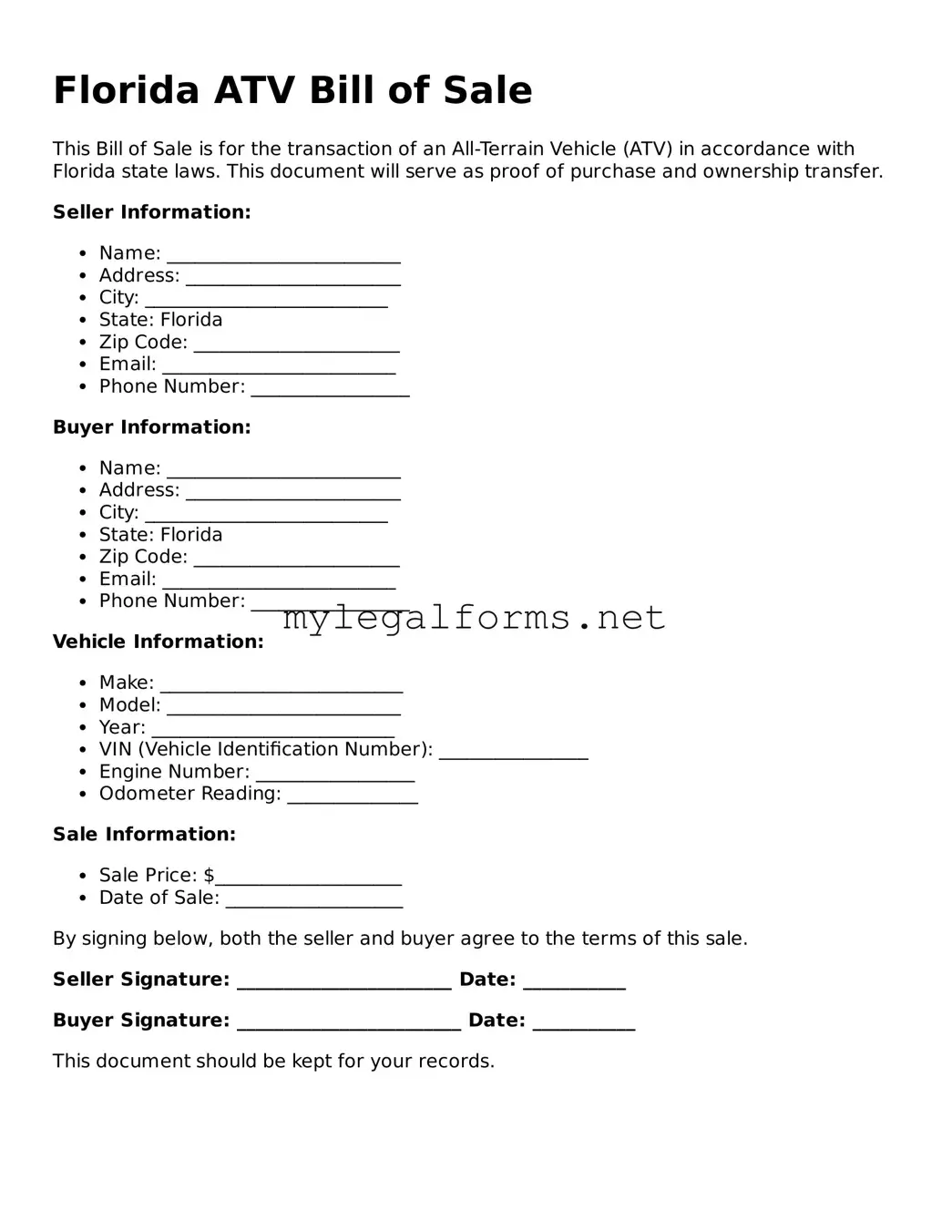ATV Bill of Sale Document for Florida State
The Florida ATV Bill of Sale form is a legal document that records the transfer of ownership of an all-terrain vehicle (ATV) from one party to another. This form serves as proof of the transaction and includes important details such as the buyer's and seller's information, vehicle identification number, and sale price. Understanding this form is essential for ensuring a smooth and legally compliant transfer of ATV ownership in Florida.
Launch ATV Bill of Sale Editor

ATV Bill of Sale Document for Florida State
Launch ATV Bill of Sale Editor

Launch ATV Bill of Sale Editor
or
⇓ PDF Form
Complete the form at your pace — fast
Finish your ATV Bill of Sale online and download the final version.